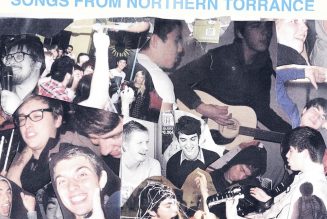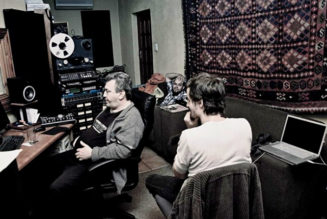As one of the most instantly recognisable songs in music history, the Paul Simon hit ‘You Can Call Me Al’ tells a humourous and somewhat absurd story about a man experiencing a midlife crisis. The narrator, feeling stuck and unfulfilled in his life, contemplates his own existence and identity, imagining a scenario where he swaps places with someone else to escape his mundane routine.
Musically, ‘You Can Call Me Al’ is known for its upbeat and lively sound. It features elements of folk, pop, and music inspired by various far-reaching parts of the world, with prominent use of African rhythms and instruments. The use of a penny whistle and a bass guitar solo, played by Bakithi Kumalo, are also distinctive features of the track’s instrumentation.
Simon began recording this track in South Africa, collaborating with local musicians and immersing himself in their musical styles. During his time there, he worked with various artists, and he was particularly impressed by the talents of the members of a local band named Stimela. It was during one of their informal jam sessions that guitarist Ray Phiri came up with the iconic riff for this song.
These recordings made in South Africa were later meticulously pieced together in New York by Simon’s producer, Roy Halee. This was a monumental task, especially in the era of analogue recording, as there were numerous tape recordings from South Africa that Halee had to painstakingly assemble through a series of edits and splices to create the final track.
The track itself features intricate wordplay carefully crafted by Simon, symbolising his experiences in South Africa during a time of apartheid-induced racial segregation. Simon’s decision to visit South Africa, despite a cultural boycott in place, generated controversy. While his intentions were noble, many South African black leaders believed that such actions undermined their cause. As a result of the boycott, South African music remained isolated. Simon’s album Graceland, however, played a pivotal role in introducing South African music to a global audience.
“‘You Can Call Me Al’ is really the story of somebody like me,” Simon explained in the documentary Under African Skies, “Who goes to Africa with no idea and ends up having an extraordinary spiritual experience.” His lamentation comes through in the song’s tackling of everyday musings, with playful lines like: “Why am I soft in the middle? /The rest of my life is so hard”.
The narrator is self-obsessed, but he becomes suddenly aware of his surroundings in a rather abrupt way, which causes him to reflect on his life in ways he never has before. “So now you have this guy who’s no longer thinking about the mundane thoughts,” Simons says, “About whether he’s getting too fat, whether he needs a photo opportunity, or whether he’s afraid of the dogs in the moonlight and the graveyard.”
Reflecting Simon’s own personal experiences in South Africa, the song incorporates elements of mbaqanga music, featuring lively rhythms and horn arrangements. This infusion of African musical influences adds to the track’s sense of energy and adventure, further challenging the mundanity of typical Western pop music.










